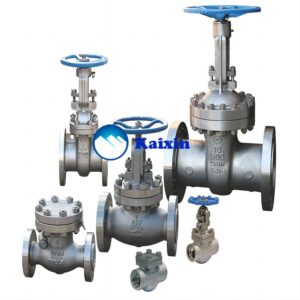Applications of Stainless Steel Valves in Industry
Stainless steel valves are integral components in various industrial processes due to their durability and resistance to corrosion. These valves come in different types and configurations, making them versatile for numerous applications. Here, we explore the diverse applications of stainless steel valves and why they are a preferred choice in industrial settings.
Type Of Stainless Steel Valves
The term “stainless steel valves” encompasses a broad range of products, each designed to fulfill specific functions. Among the most common are the 3/4 ball valve stainless steel and the stainless steel 3-way ball valve. These valves are favored for their ability to control fluid flow efficiently.
The 3/4 ball valve is particularly popular in systems where space is limited but reliable flow control is necessary.
Application
In the chemical industry, the need for corrosion-resistant valves cannot be overstated. Stainless steel valves are ideal for handling aggressive chemicals and high temperatures, ensuring longevity and reliability. Their resilience to chemical reactions makes them indispensable in this sector.
The oil and gas industry frequently utilizes stainless steel fittings due to their robustness and ability to withstand harsh environmental conditions. Valves in this industry must operate under high pressure and temperature, making stainless steel an ideal choice for maintaining safety and efficiency.
In water treatment facilities, stainless steel valves play a crucial role in controlling the flow and pressure of water. Their resistance to rust and corrosion ensures that they remain functional over long periods, even in the presence of moisture. This makes them essential for both potable water systems and wastewater management.
Hygiene and safety are paramount in the food and beverage industry. Stainless steel valves, being easy to clean and resistant to contamination, are widely used in this sector. They help maintain the purity of products while ensuring compliance with health standards.
The use of industrial valves made from stainless steel offers several advantages. These include:
- Durability: Stainless steel is known for its strength and ability to withstand extreme conditions.
- Corrosion Resistance: One of the most significant benefits is their resistance to rust and corrosion, which is crucial for longevity and reliability.
- Versatility: Available in various types and sizes, they can be tailored to suit specific industrial needs.
- Safety: Their robust construction ensures that they can handle high pressure and temperature safely.
In conclusion
stainless steel valves are a vital component in multiple industries due to their versatility, durability, and resistance to harsh conditions. Whether in chemical processing, oil and gas, water treatment, or food and beverage industries, these valves ensure efficiency and safety in operations. As industries continue to evolve, the role of stainless steel valves will undoubtedly remain significant in promoting efficient and safe industrial processes.
Stainless steel valve is a type of valve made from durable and corrosion-resistant stainless steel. Stainless steel is an alloy of steel, chromium, and other elements that provides excellent resistance to rust and corrosion, making it an ideal material for valves used in harsh environments. Stainless steel valves are commonly used in industries such as oil and gas, chemical processing, food and beverage, and pharmaceuticals. They are available in various types, including ball valves, gate valves, globe valves, check valves, and butterfly valves, and can be manual or automated. Stainless steel valves are highly durable, have a long service life, and are easy to maintain, making them a popular choice for industrial and commercial applications.


